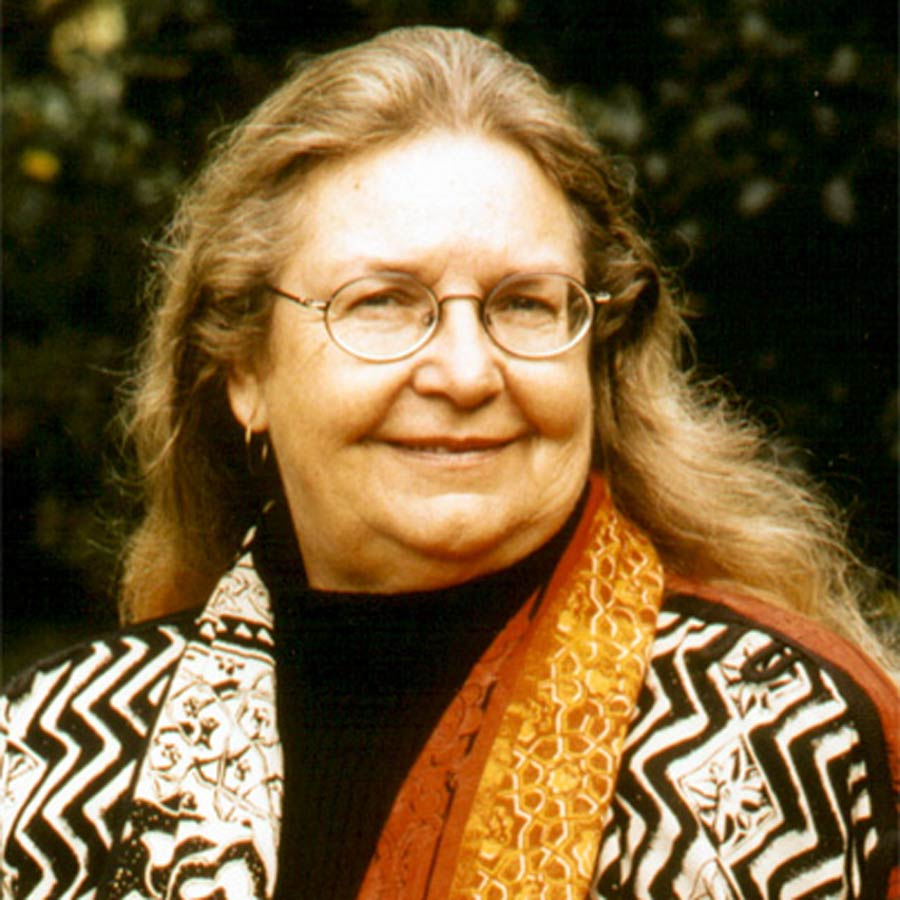The views expressed in our content reflect individual perspectives and do not represent the authoritative views of the Baha'i Faith.
“Listen and silent use the same letters.” Since coming across this gem recently, it stays in the forefront of my mind. It keeps popping up, sometimes quite unexpectedly.
So I have decided that I need to ponder its meanings, which far transcend the obvious.

Anne Wilson Schaef
To listen, to truly listen to someone, we must be silent—not only outwardly silent, but also inwardly. If our mind is chattering about an unfinished conversation with someone else, chores that must be done, or musing about what to make for dinner, then we aren’t tuned in and truly listening. If we aren’t being present, if we are not giving our spouse, child, parent, friend or acquaintance the courtesy of our undivided attention, we not only do them a disservice, we suffer, too. Also, when we disrespect others, they in turn will lose respect for us. Anne Wilson Schaef, in her book, Native Wisdom for White Minds, posits, “My lack of presence is an insult to those I love. Including myself.”
Schaef quotes a Navajo healer who tells us “We are made up of prayers. With prayer we listen to what is really important inside of us and all around us—the Beauty Way.”
That stirring within, if we truly stop and listen, is the voice of the spirit speaking to us. Whether we call it intuition, inspiration or a gut feeling, it can often answer our prayers.
But too often we say, “O God, hear my prayer,” yet do not wait around for a reply before moving on to the next prayer, or to our daily comings and goings. The constant head chatter must be stilled for us to be able to listen for an answer. A few quick seconds or minutes might not suffice.
We may need to meditate, or just empty ourselves and wait, patiently, to see if an answer is imminent. No, we won’t hear a voice booming from the sky or emanating from a burning bush, but we may suddenly think of an idea, a step to take, a path to follow. Of course it is possible that the answer may come later, in another hour, day, week, month or several months afterwards. It may appear in a dream, or a sudden “a-ha moment.” But if we don’t wait, if we don’t open ourselves to receive inspiration, we may postpone or totally miss an important message that was ready to manifest itself the moment we prayed.
The Baha’i teachings assure us that the Creator listens carefully: “Ready is He to answer whosoever calleth upon Him, and nigh is He unto such as commune with Him.” – Baha’u’llah, The Proclamation of Baha’u’llah, p. 60.
Meditation doesn’t have to always follow prayer. We can find answers to our questions in nature, too. We can learn it by emulating the Native populations. Schaef suggests, “It takes a lot of listening to hear what the rocks are saying.”
Schaef quotes a Native American elder who remarked, “You white folk—you’re always asking questions. You never just watch and listen. You can usually learn what you need to know by watching and listening.”
We don’t even have to focus on something tangible. Schaef says, “When I can watch my questions pass through my mind like clouds across a summer sky, I have stepped upon the path to wisdom.”
These wise sayings all basically remind us to stop, be still, and listen. When mind and body are occupied with the mundane noises of everyday life, we can’t hear the spirit speak:
Baha’u’llah says there is a sign (from God) in every phenomenon: the sign of the intellect is contemplation and the sign of contemplation is silence, because it is impossible for a man to do two things at one time—he cannot both speak and meditate.
It is an axiomatic fact that while you meditate you are speaking with your own spirit. In that state of mind you put certain questions to your spirit and the spirit answers: the light breaks forth and the reality is revealed ….
Through the faculty of meditation man attains to eternal life; through it he receives the breath of the Holy Spirit—the bestowal of the Spirit is given in reflection and meditation.
The spirit of man is itself informed and strengthened during meditation; through it affairs of which man knew nothing are unfolded before his view. Through it he receives Divine inspiration, through it he receives heavenly food.
Meditation is the key for opening the doors of mysteries. In that state man abstracts himself: in that state man withdraws himself from all outside objects; in that subjective mood he is immersed in the ocean of spiritual life and can unfold the secrets of things-in-themselves. To illustrate this, think of man as endowed with two kinds of sight; when the power of insight is being used the outward power of vision does not see.
This faculty of meditation frees man from the animal nature, discerns the reality of things, puts man in touch with God ….
Through this faculty man enters into the very Kingdom of God. – Abdu’l-Baha, Paris Talks, pp. 174-175.
















Comments
Sign in or create an account
Continue with Googleor